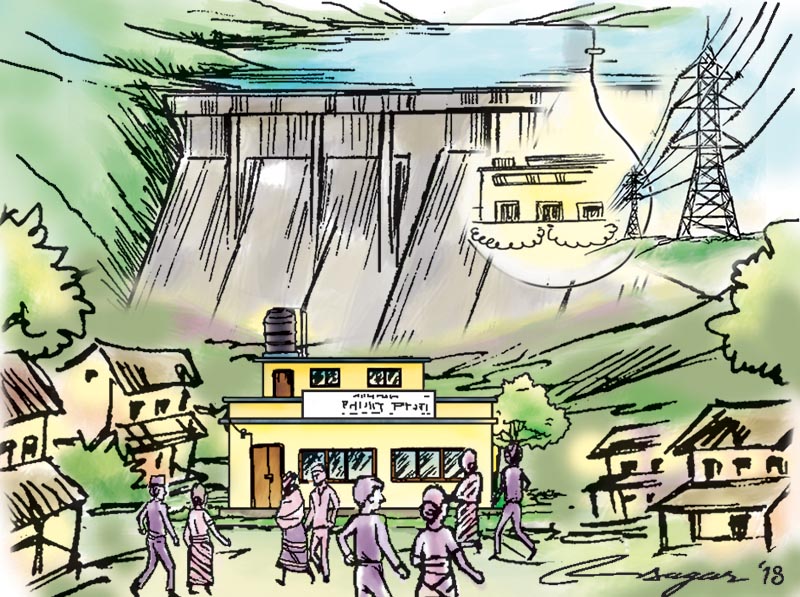Nepal’s most vulnerable investors will benefit from improved safeguards on local shares: IFC report
Kathmandu, September 18
A report on analysis of Nepal’s innovative benefit-sharing policy that allows communities to invest in hydropower projects through the purchase of ‘local shares’ has recommended more community education and improved regulation to maximise opportunities for investors while protecting them from undue risks.
Nepal government requires hydropower developers to offer up to 10 per cent of their shares to communities affected by the project. With a goal to develop 10,000 megawatts in the next 10 years, as much as $439 million in equity could be raised from project-affected communities alone.
For example, in the last three years over $10 million was raised through local shares by 13 small to medium hydropower companies.
Released by International Finance Corporation (IFC), a member of the World Bank Group, the report titled ‘Local Shares: An In-depth Examination of the Opportunities and Risks for Local Communities Seeking to Invest in Nepal’s Hydropower Projects’ found that the investment model offers great potential to create local ownership and increase public support for hydropower projects.
However, it also found a widespread lack of understanding of how the market mechanism works, and a lack of effective safeguards to reduce risk to investors. This is especially true for women and others who are socially, economically and culturally disadvantaged.
Many poor rural households borrow at high interest rates or sell primary assets to invest in local shares. The study found they often have unrealistic expectations of returns, and are unclear on the risk of loss. That could explain why, despite a fall in value since their peak in 2014, demand for local shares continues to grow.
“The comprehensive consolidation of this report is very timely and will hopefully enable informed discussions at the policy level to improve and strengthen local shares mechanism as a viable model of equity participation involving local people,” an IFC press note has quoted Kulman Ghising, managing director of Nepal Electricity Authority, as saying.
Among the study’s recommendations are simplifying financial information to be more easily understood by non-experts; defining the local share requirements in project bid documents; creating low-risk mechanisms for vulnerable households to finance their share purchases; computerising the share allocation process; and improving transparency and accountability by making it mandatory for all projects to put their information online.
“Nepal’s local shares model is unique. It recognises the importance of communities in private sector hydropower investment,” said Wendy Werner, IFC country manager for Bangladesh, Bhutan and Nepal. “IFC aims to ensure the private sector contributes to sustainable power development and that this investment opportunity is within reach of every citizen, balancing the potential returns with the project risks.”






